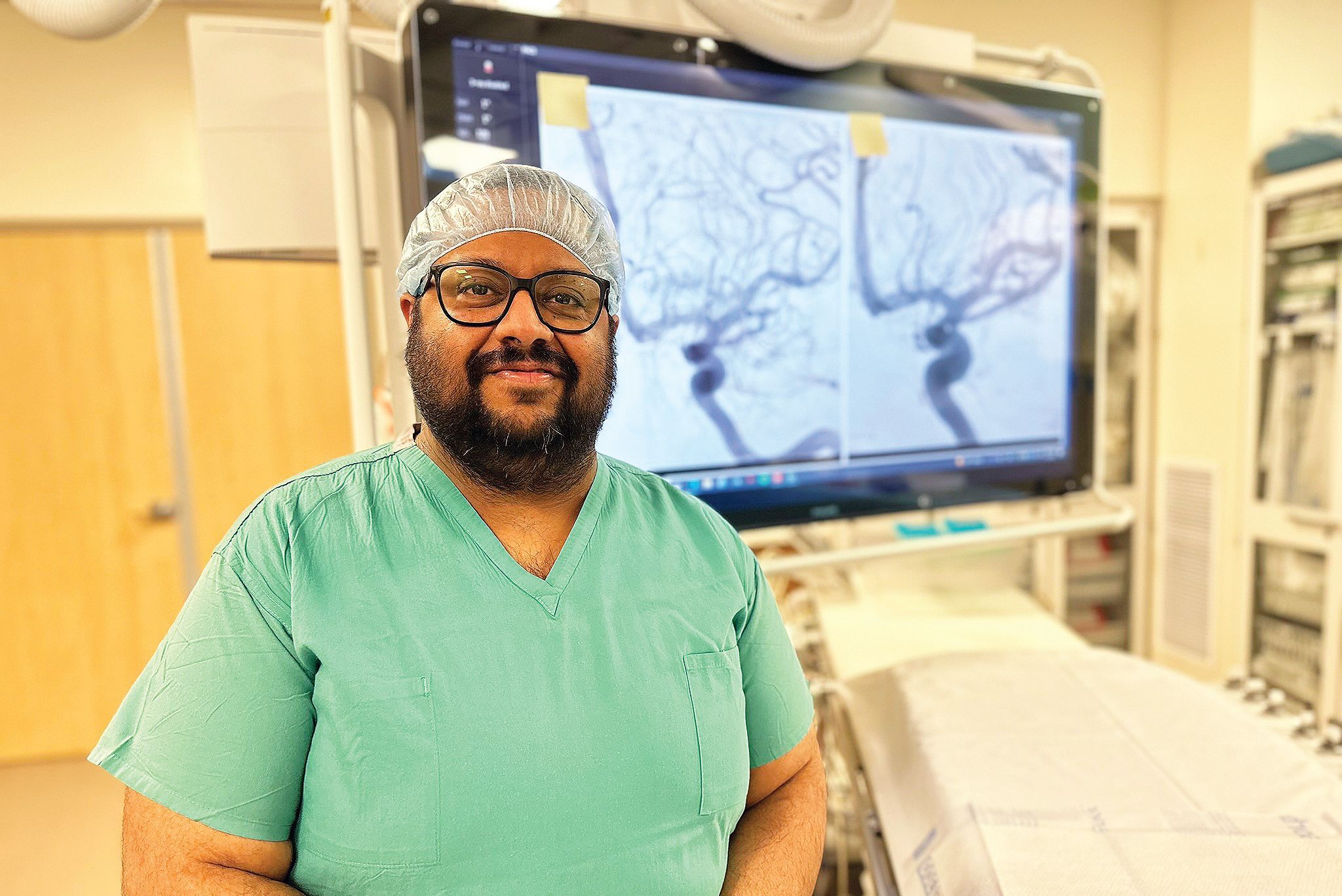MCR brings new stroke treatment to region

LOVELAND — Experts at UCHealth Medical Center of the Rockies in Loveland are treating some stroke patients with a minimally invasive procedure that they say not only saves lives but also can lead to a higher quality of life after stroke.
The advanced technique, called a mechanical thrombectomy, removes some of the most damaging and life-threatening blood clots that get lodged in the brain’s large central vessels and aims to restore blood flow to the brain.
“Time is critical in this type of procedure,” said Dr. Gautam Sachdeva, a vascular and interventional neurologist at MCR who moved to Northern Colorado last year to help build the thrombectomy program. “We have seen this time and time again; if this is done in a timely manner and there has not been significant brain damage already, there is a very high chance of near complete reversal of deficits.”
SPONSORED CONTENT
How dispatchable resources enable the clean energy transition
Platte River must prepare for the retirement of 431 megawatts (MW) of dispatchable, coal-fired generation by the end of the decade and address more frequent extreme weather events that can bring dark calms (periods when there is no sun or wind).
A thin flexible tube – or catheter – is inserted into an artery in the groin or arm. With the help of X-ray guidance, an interventional neurologist guides the catheter to the blood clot in the brain. Then, a special device inserted through the catheter is used to engage the clot and pull it out to restore blood flow to the brain. The interventional neurologist can also use a technique that sucks the clot out if need be. The procedure typically takes less than an hour.
A mechanical thrombectomy is most effective the sooner it is performed after a stroke, according to Sachdeva. Traditional clot-busting medications are only an option for patients in the first 4.5 hours after the first symptoms appear, and they don’t always work on large clots. The thrombectomy can be offered up to 24 hours from the last time the patient was functioning normally.
Patients often recover quickly after the procedure itself, Sachdeva said. Overall recovery depends on how significant the stroke was prior to the procedure. In an optimal situation with no significant brain damage and a timely and successful intervention, some patients start moving their paralyzed side and talking immediately after the procedure, walking the next day, and even getting discharged home in a couple days. If there is more damage, it could take a few days and even a rehabilitation stay after the procedure. UCHealth follows up with these patients in two to four weeks in the outpatient setting after the procedure to make sure they are doing well and are on optimal medications to prevent future strokes.
MCR is the first hospital between Denver and Casper, Wyoming, to offer this advanced procedure. In the past, patients who needed this care had to be rushed to Denver if there was time. Now that it’s available at MCR, patients can get the care quicker and closer to home.
“Launching this program in northern Colorado is a significant development for our community because if a patient is experiencing a major stroke here, we can take care of it right away, and the patient will have a much higher chance of excellent recovery,” Sachdeva said.
The addition of the thrombectomy program further strengthens MCR’s position as a regional leader in stroke treatment. The hospital is already designated by The Joint Commission as a Primary Stroke Center, a classification awarded to programs that have the staff, resources and processes in place to deliver fast, advanced care to stroke patients.
Because a stroke can happen at any age and any time, Sachdeva urges everyone to know and watch for the signs of stroke. “BE FAST” is an easy way to remember sudden signs of stroke:
- Balance. Sudden loss of balance or inability to walk straight.
- Eyes. Sudden loss or changes in vision.
- Face. Uneven smile or drooping of mouth.
- Arm. Sudden loss of arm strength or coordination.
- Speech. Inability to speak clearly or to understand what is being said.
- Time. Time to call 911 if you suspect stroke symptoms.


